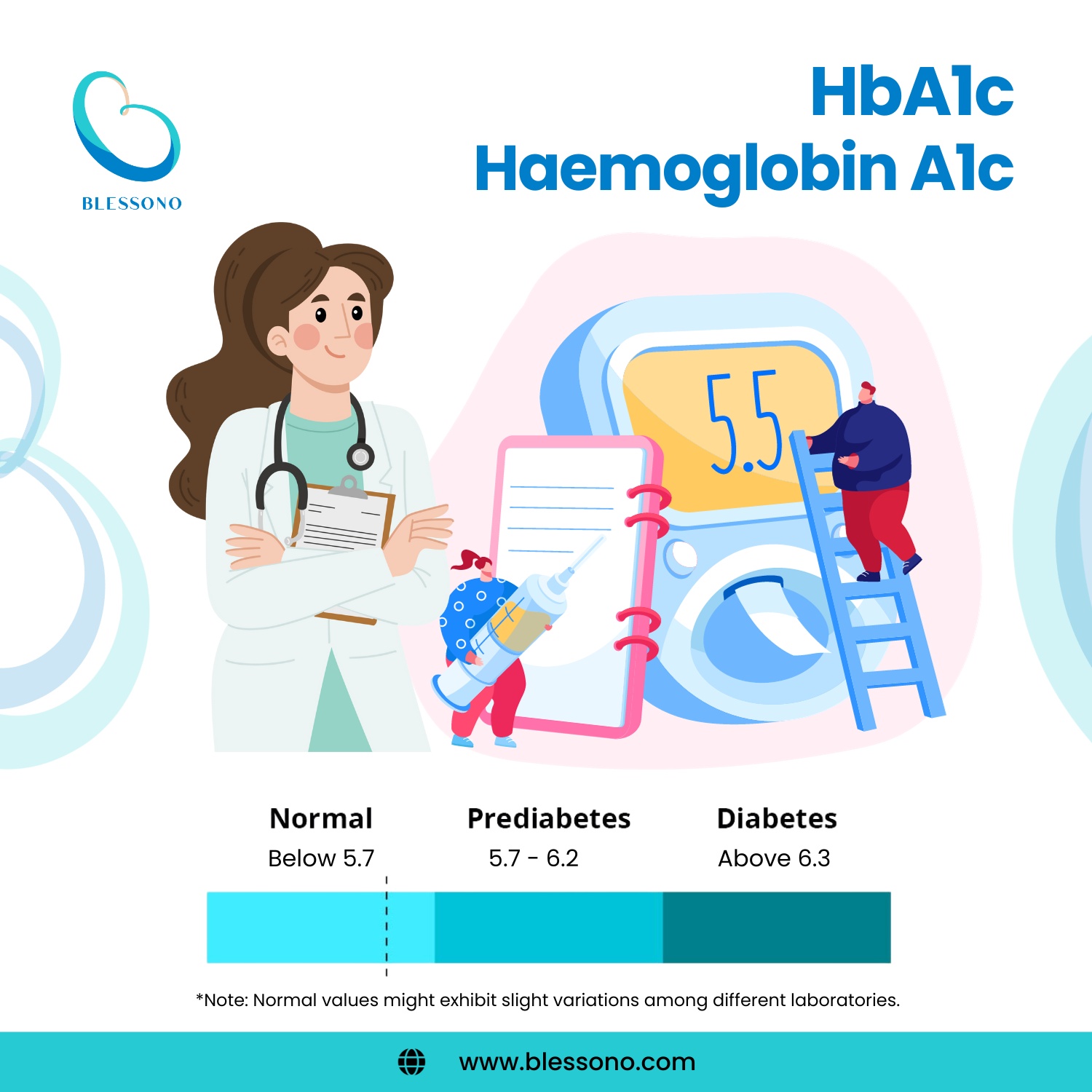Glycated Hemoglobin, commonly referred to as HbA1c, is a crucial indicator in the realm of diabetes management. This blood test provides valuable insights into long-term blood sugar levels, offering a more comprehensive view than traditional glucose tests. In this article, we will delve into the significance of HbA1c, its role in diabetes management, interpretation of results, and the importance of regular monitoring.
What is HbA1c?
HbA1c is a form of hemoglobin that is chemically linked to glucose. Hemoglobin is a protein in red blood cells responsible for transporting oxygen throughout the body. When blood sugar levels are elevated, glucose attaches to hemoglobin, forming HbA1c. As red blood cells have a lifespan of approximately 2-3 months, Glycated Hemoglobin reflects average blood sugar levels over that time frame.
Significance in Diabetes Management
For individuals with diabetes, HbA1c is a vital tool for assessing how well blood sugar levels have been controlled over an extended period. Unlike daily glucose monitoring, which provides a snapshot of current levels, HbA1c offers a more stable and reliable indicator of overall glycemic control. Healthcare professionals use this information to adjust treatment plans and evaluate the effectiveness of diabetes management strategies.

Interpreting HbA1c Results
HbA1c results are typically presented as a percentage of total hemoglobin. Diagnostic Values of HbA1c in Malaysia Adults
– Normal: Below 5.7%
– Prediabetes: 5.7% to 6.2%
– Diabetes: 6.3% or higher
Note : Normal values might exhibit slight variations among different laboratories.
It’s essential to note that individual target ranges may vary based on factors like age, health conditions, and overall treatment goals. Collaborate closely with healthcare professionals to establish personalized targets.
The Importance of Regular Monitoring
Regular HbA1c testing is crucial for managing diabetes effectively. It helps healthcare providers make informed decisions about treatment adjustments, medication changes, and lifestyle modifications. By monitoring HbA1c regularly, individuals with diabetes can proactively address fluctuations in blood sugar levels, reducing the risk of complications and optimizing overall health.
Factors Affecting HbA1c
Various factors can influence HbA1c levels, including:
1. Red Blood Cell Lifespan: Conditions affecting red blood cell turnover can impact HbA1c results.
2. Anemia: Low iron levels or certain types of anemia can affect the accuracy of HbA1c readings.
3. Ethnicity: Some ethnic groups may naturally have slightly higher or lower HbA1c levels.
HbA1c is pivotal for anyone navigating diabetes management. Regular monitoring, interpretation of results, and collaboration with healthcare professionals contribute to informed decision-making and optimal glycemic control. By incorporating this comprehensive guide into your diabetes awareness efforts, you empower individuals to take charge of their health and make informed choices for a brighter, diabetes-managed future.
Empowering Health with Blessono
Blessono stands as a beacon for those seeking to navigate their health journey with precision. Offering HbA1c tests and a suite of comprehensive services, Blessono empowers individuals to proactively manage their blood sugar levels. The platform’s user-friendly interface, coupled with expert guidance, facilitates a seamless experience in understanding and optimizing metabolic health.
HbA1c stands for Hemoglobin A1c, where “Hb” refers to hemoglobin, and “A1c” denotes a specific form of hemoglobin with glucose attached to it. This test is commonly used to measure the average blood glucose levels over a period of two to three months, providing valuable information about long-term glycemic control, especially in individuals with diabetes
Check out other article about High Sensitive C-Reactive Protein (hs-CRP)










